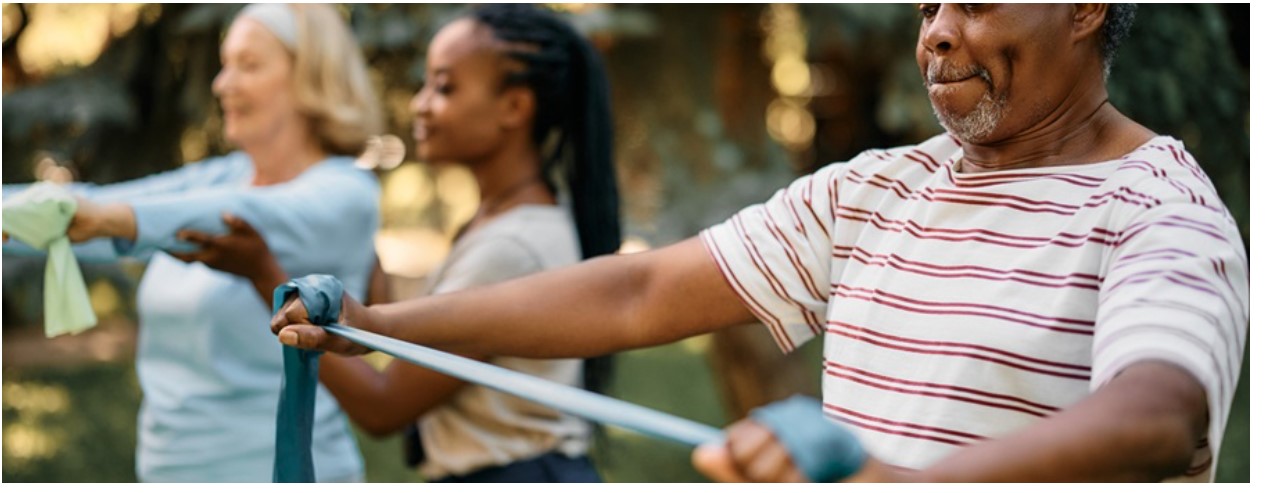[Resource] Non-drug strategies to reduce frailty

Click HERE to access this resource
Non-drug strategies to reduce frailty

Dec 20, 2023 - McMaster University -
The Bottom Line
- Frailty can lead to a host of health conditions and injuries, and impact quality of life.
- Non-drug options, such as physical activity, multicomponent strategies, and nutrition-related strategies may be effective in reducing frailty in older adults.
- Physical activity, and especially resistance training, may provide the greatest benefit.
- Before starting any new non-drug option, speak with your healthcare team to come up with a plan that will help keep you safe.
In Canada, over 1.6 million older adults are medically frail; a state of pre-disability in which there is a decline in the healthy or normal functioning of the body (1-5). Frailty can be caused by age or disease-related conditions (2-4;6). It makes those living with it vulnerable; slowing down or preventing recovery from illness or trauma, reducing physical function and mobility, hindering the ability to carry out activities of daily living, increasing the risk of falls, contributing to depression, and more (2;6-9). Caregivers are often needed for adults living with frailty (6).
Evidence continues to emerge on effective strategies for reducing frailty in older adults, and how they compare to one another. Increasingly, researchers have been looking into non-drug options. A recent systematic review examined the effectiveness of non-drug strategies for reducing frailty, as well as improving activities of daily living and quality of life, in older adults compared to usual care, no treatment, placebo, or other non-drug strategies. Non-drug strategies included physical activity, nutritional supplements, geriatric assessments, and combinations of these methods (2).
So, should older adults consider non-drug strategies? And if yes, which ones?
What the research tells us
For starters, the evidence analyzed in the review was of very low to moderate quality, so the results should be viewed with caution and may change as more evidence becomes available. With that in mind, the review found some promising results for certain non-drug strategies!
First, let us tackle reducing frailty in older adults. Potentially effective non-drug strategies include physical activity, nutritional supplementation, and the approach of combining more than one strategy. That said, physical activity appears to be the most effective. Within the umbrella of physical activity, resistance training, mind-body exercises, mixed physical training, and aerobic training all show benefits, but resistance training may be best.
Second, we have improving activities of daily living. Here, we see that mixed physical training may be the best strategy to help achieve this. Lastly, both mixed physical training and detailed geriatric assessments may help enhance quality of life, with assessments being the more optimal strategy.
Staying safe while engaging in any strategy is always top of mind. Not all studies reported on negative side effects, but for those that did, falls and injuries were reported most often. Additionally, it should be noted that when serious side effects did occur, they were ultimately not tied back to engaging in the non-drug strategy itself.
That said, more high-quality research is needed to confirm and add to the results found in this review (2).
Ultimately, if you are looking for ways to reduce frailty, resistance training might be a good place to start. But whether it is exercise or another approach, before starting, it is critical to work with your healthcare team to come up with a plan that keeps you safe and motivated and helps you meet your specific health goals.
-
By
McMaster Optimal Aging Portal
-
Published
Jan 03, 2024
-
Subject Area
-
Audience
-
Category
Newsletter
Sign up for the Healthy Aging CORE BC e-news to keep up-to-date with activity from the platform and the Community-Based Seniors Services (CBSS) sector across the country.
